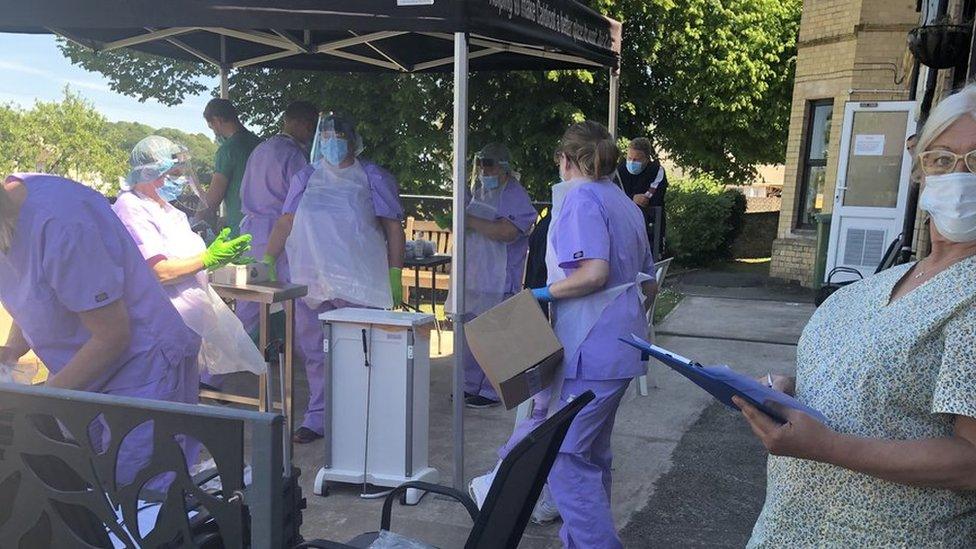Covid-19: Care home visit ban 'traumatising relatives'
- Published
Sandra Lazarus says she was denied seeing husband before his death due to Covid-19 rules
The trauma of not being able to visit relatives in care homes will stay with people "for years", the older people's commissioner for Wales has said.
Her calls come after the family of John Lazarus, 83, said they were not allowed to be with him before his death, which was not related to Covid-19.
Mr Lazarus died last month at Glanffrwd Care Home in Bridgend.
The owner, HC-One, said a visit was not allowed as he was not considered to be at the end of his life.
Mr Lazarus's wife of 59 years, Sandra, said she knew her husband did not have long to live but not being able to say goodbye made the situation much worse.
"I can't turn back the clock. I can't say, can we have a re-run and let me see him. He's gone now. I missed the boat. I just wanted to tell him we loved him."
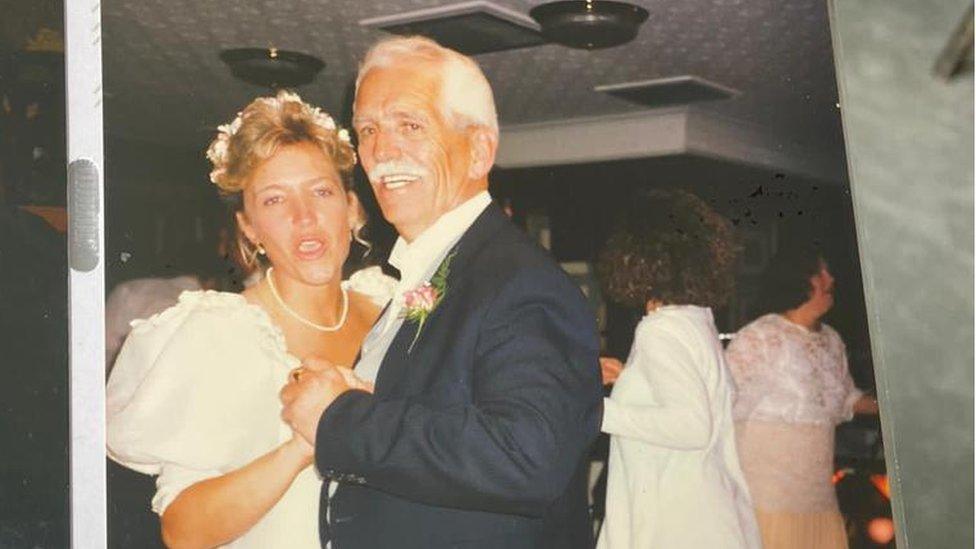
John Lazarus, pictured with daughter Claire, was a much-loved husband and father
The father-of-three, who served with South Wales Police for 30 years, had Alzheimer's disease.
Mrs Lazarus said it "broke her heart" when he had to move into the care home at the end of 2019.
Before the outbreak of Covid-19, she visited every afternoon and they would have a cup of tea and a "tot of whisky and Coke" and watch a film.
Visits were cancelled in March, outdoor visits were then permitted in the summer, but in September Bridgend was put under local restrictions.
Under Welsh Government policy, end-of-life visits are still allowed regardless of any local restrictions or national lockdown.
The Lazarus family said they had been allowed to look through the window at him, but it was difficult as he was deaf and would get distressed and beckon his wife and other family members to come in.
"He'd say 'I don't care about the virus. I just want you in here now'," said his daughter Claire Jones.
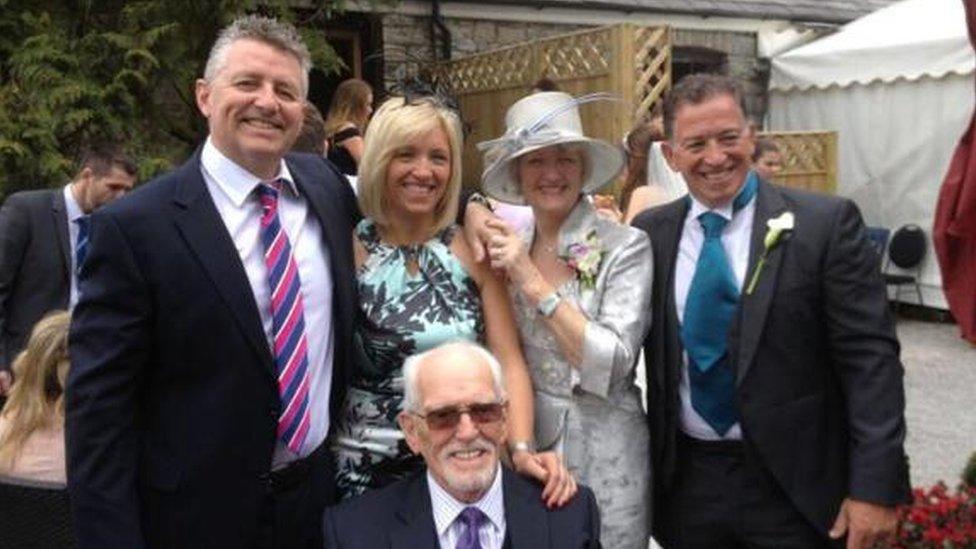
John Lazarus with son Mark, daughter Claire, wife Sandra and son Nigel before the pandemic
Mrs Lazarus said her husband had stopped eating and drinking and they would drive up past the window to see how he was because they knew his condition was deteriorating.
"I think in his mind he had nothing to live for now," she said.
"I'd been with John since I was 17 and we'd always been together, we've done everything together."
On their wedding anniversary a carer held the phone for him.
"He said to me 'I love you'. He said it three times, I'll never forget it. Those were the last words I heard from my husband."
On 19 October, Mr Lazarus was rushed into hospital with a temperature and returned to the home in the middle of the night.
Two hours later his family received a call from the home to say he had died.
"I hope he didn't think that we didn't love him and we just left him there and forgot about him," Mrs Lazarus said, "because we didn't and we never will."
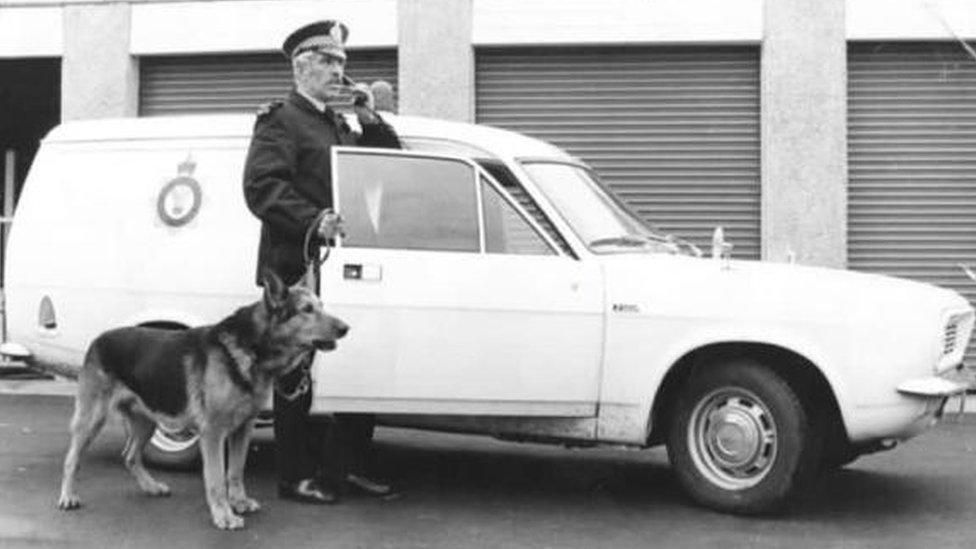
Former police officer John Lazarus was a "proud man" say his family
His wife and daughter were allowed into the home, wearing full PPE, after he died.
"It was horrendous," Ms Jones said. "Giving your dead parent a kiss in PPE with visors is beyond. It's overwhelming."
She said people were being "kept safe to the detriment of their health" by not having visitors.
She wants rapid testing to be available for relatives so they can care for their loved ones during the final moments of their lives.
Mrs Lazarus added: "They say you can come in at the end of life, but when is 'end of life'? None of us know."
She wants care homes to "look at this and say 'this person's really not going to last long... they need to be with their families now, not wait until their last breath".
The older people's commissioner Helena Herklots is urging care homes to allow visits for residents, particularly those who are at the end of their lives.
"We know that this can be done safely because care homes are doing it," she said. "So I would urge those that for whatever reason decided they can't to think again."
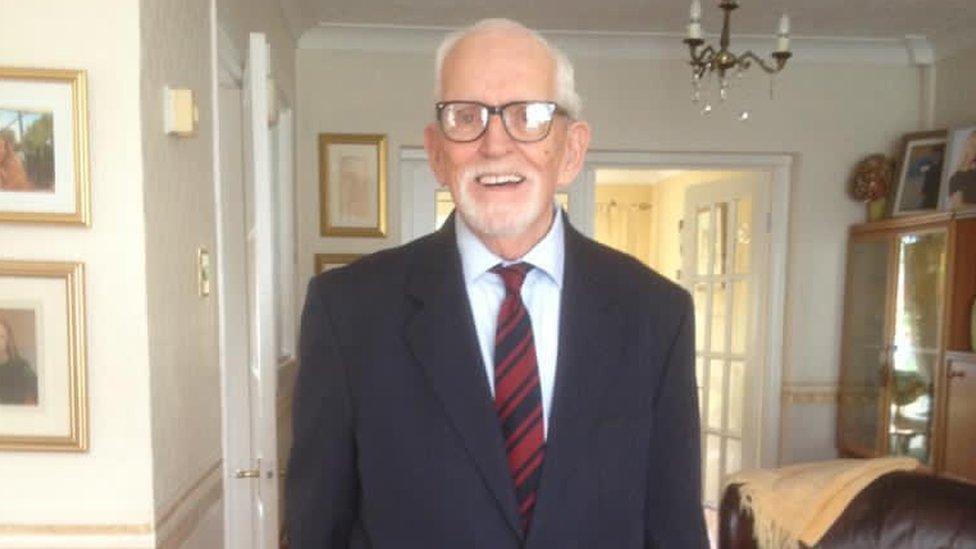
John Lazarus died in October in his care home in Bridgend
A spokesperson for HC-One said that Mr Lazarus was not considered to be at the end of his life, meaning they applied local visiting restrictions from mid-September.
"We would like to express our deepest condolences for the sad passing of Mr Lazarus, who will be dearly missed by those who knew him."
They said that in October they had planned safe weekly window visits for the family, but Mr Lazarus died shortly afterwards.
HC-One said it recognised how difficult it was for families to be apart from loved ones and said it had "done everything we can to keep them connected".
"We have had to make difficult decisions to ensure a balanced approach is in place that enables residents to spend more time with their loved ones, whilst also ensuring we do everything possible to prevent coronavirus entering our homes."
- Published4 November 2020
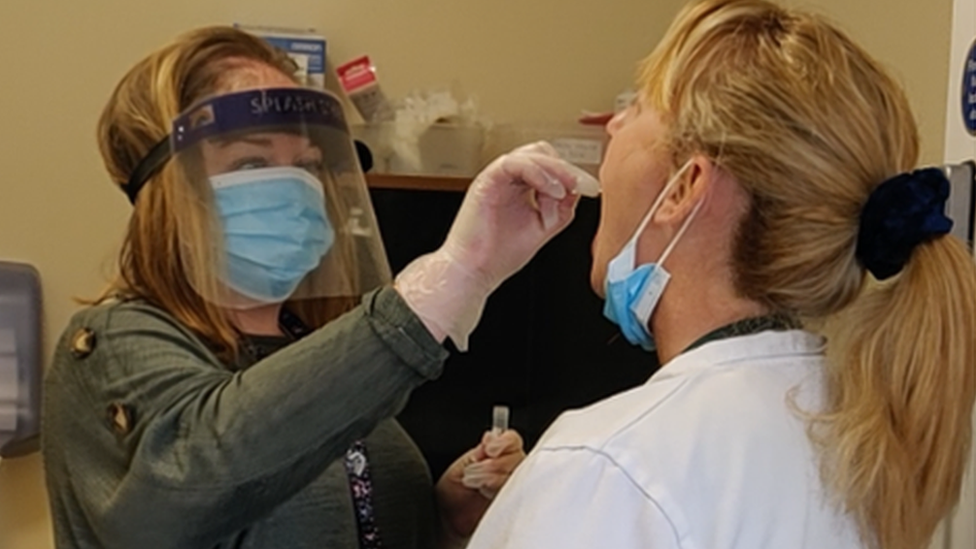
- Published8 July 2020
